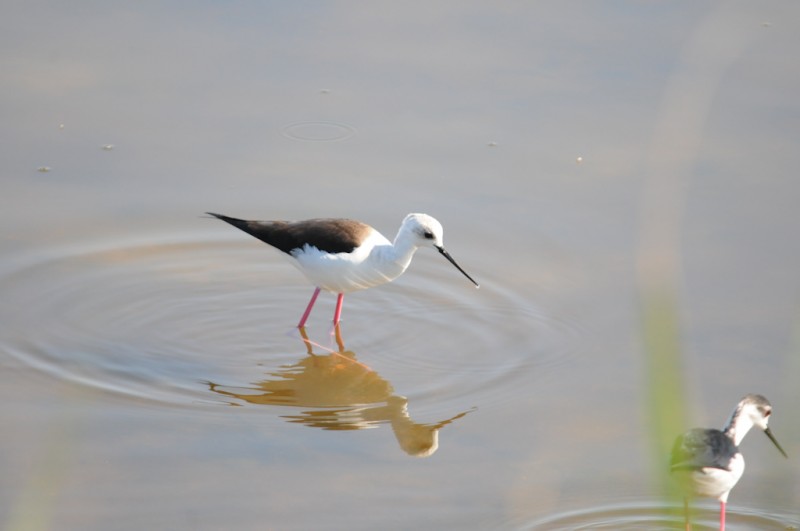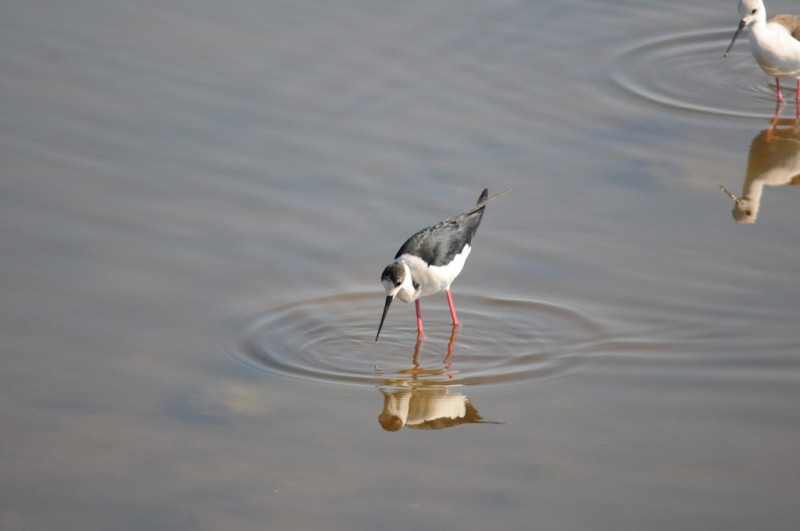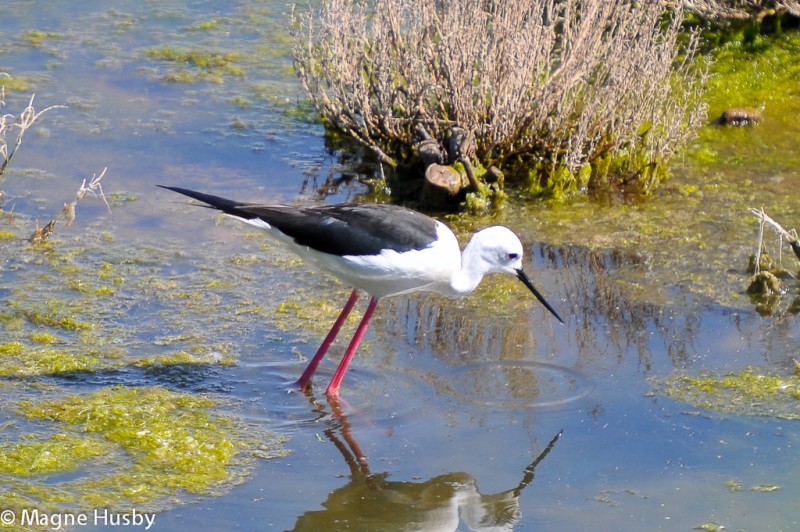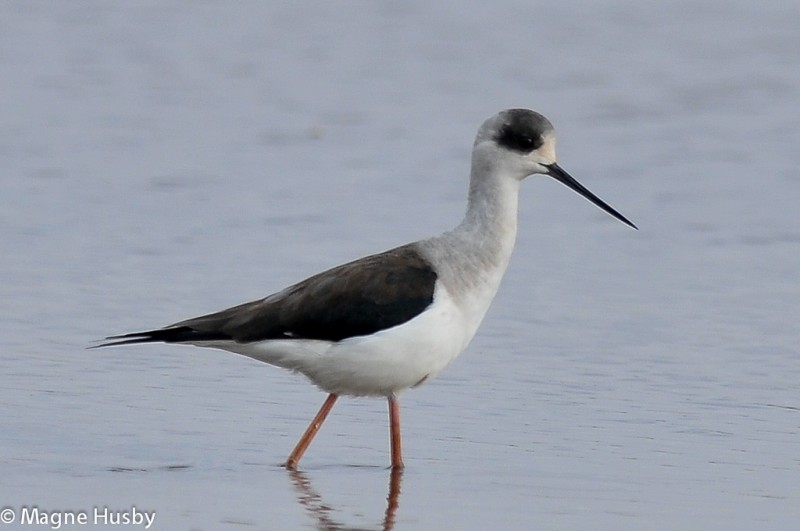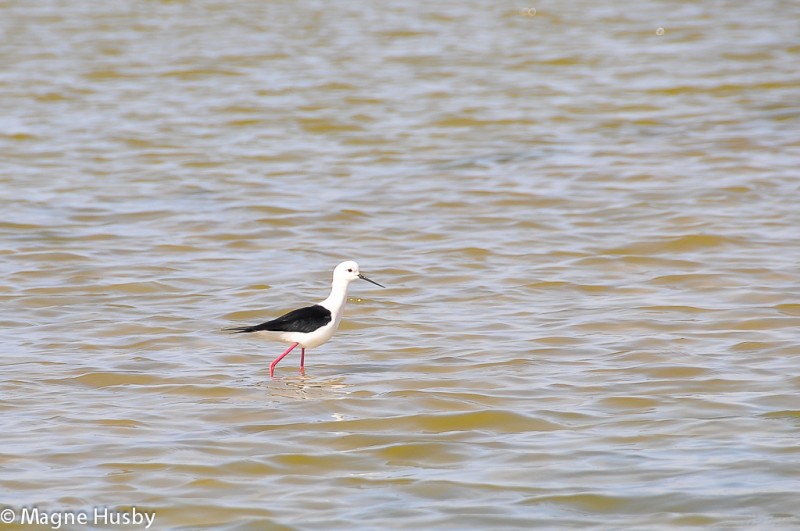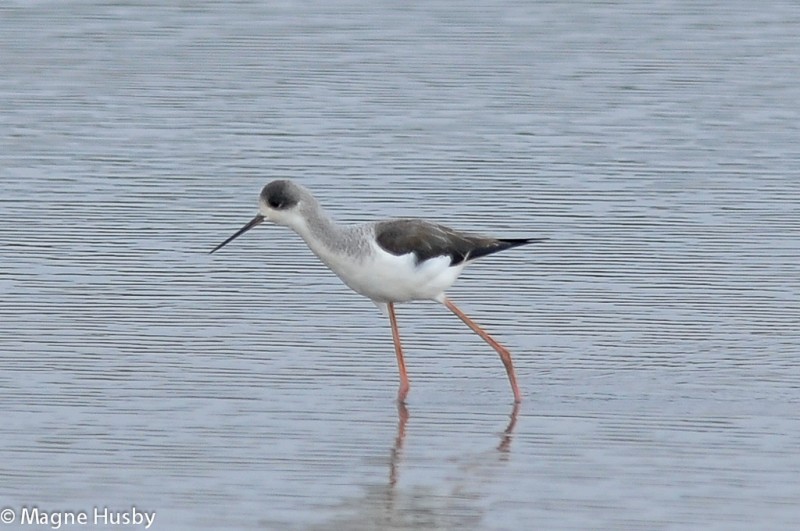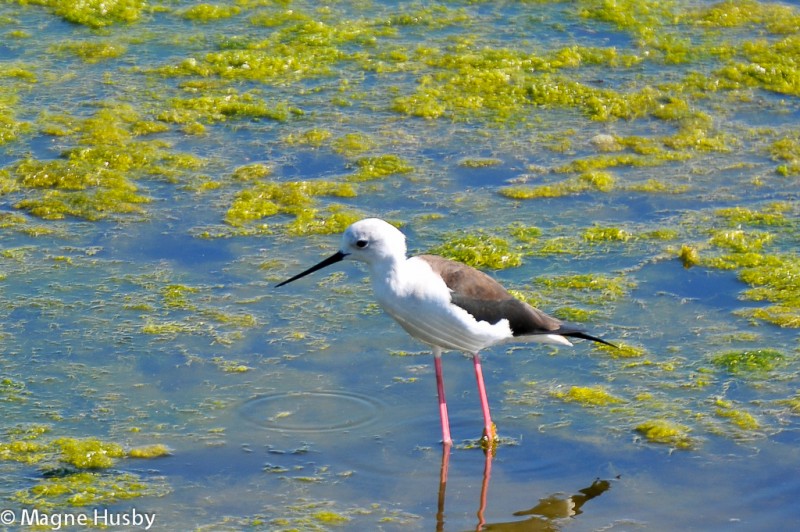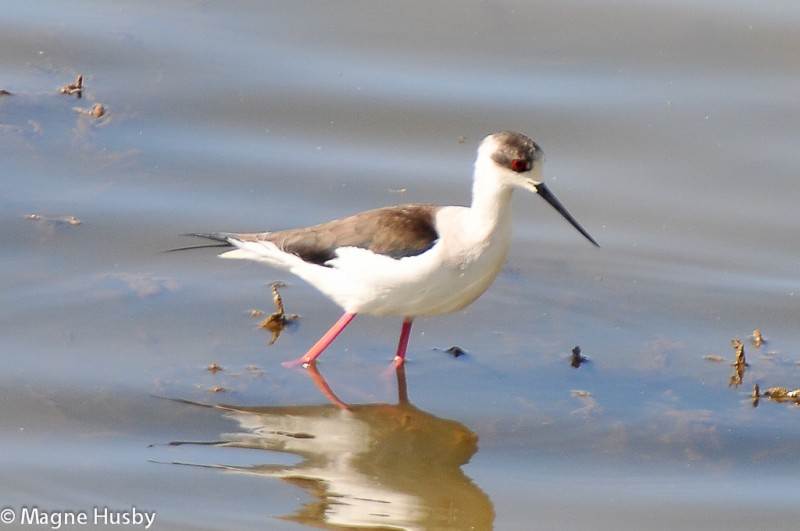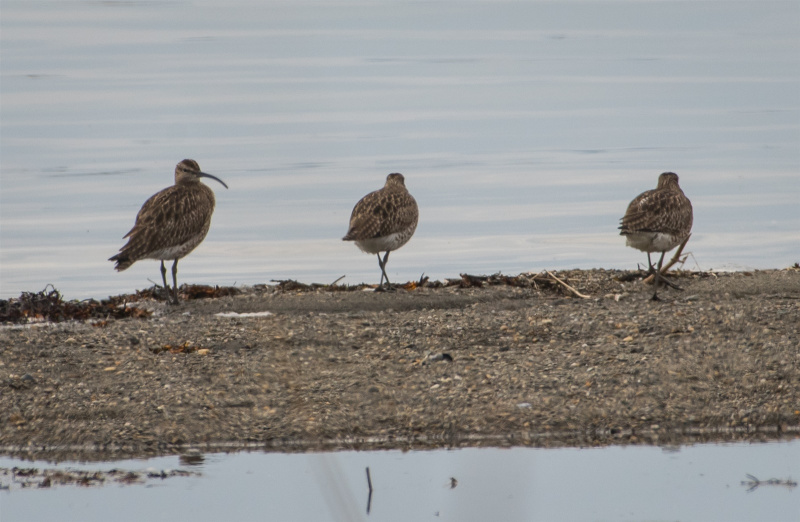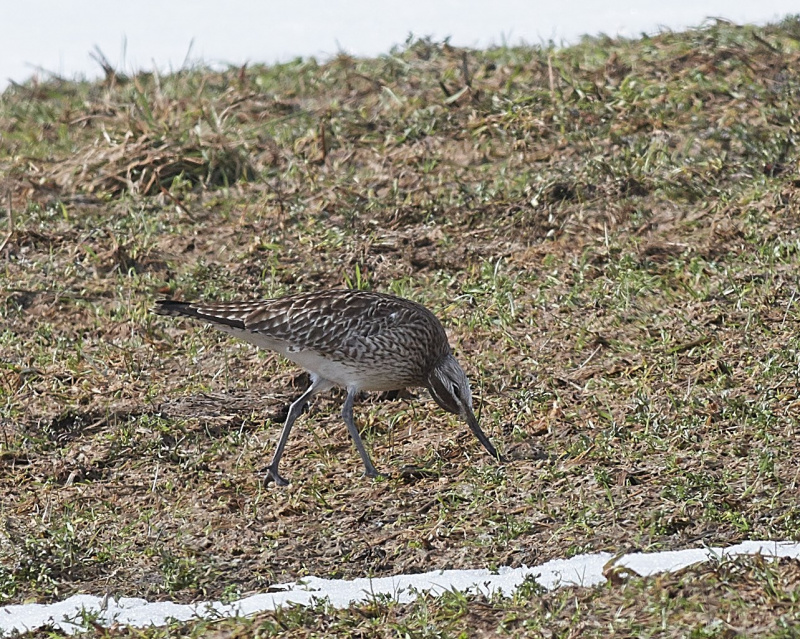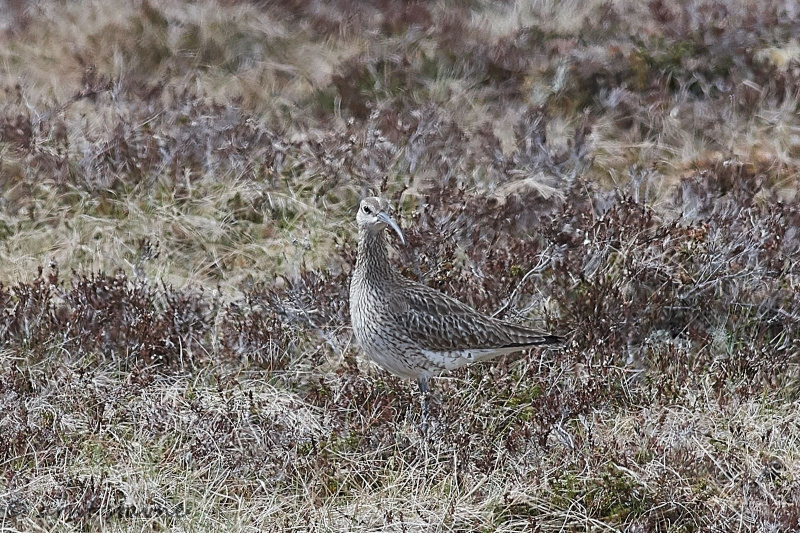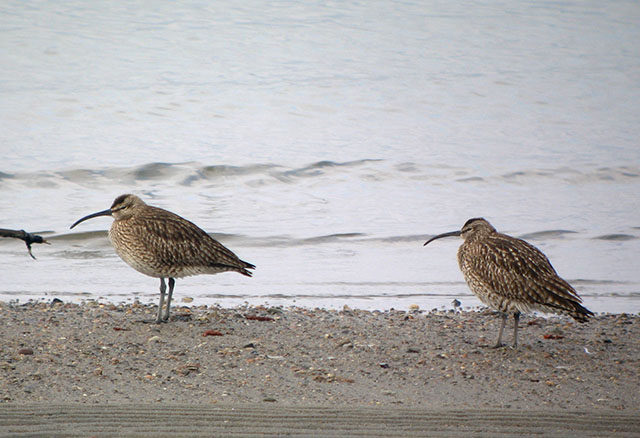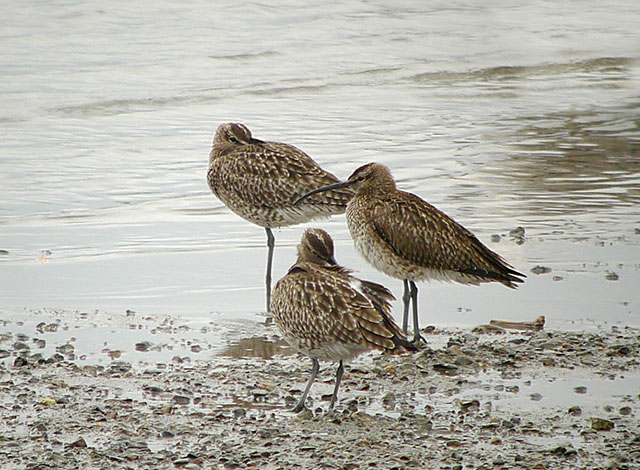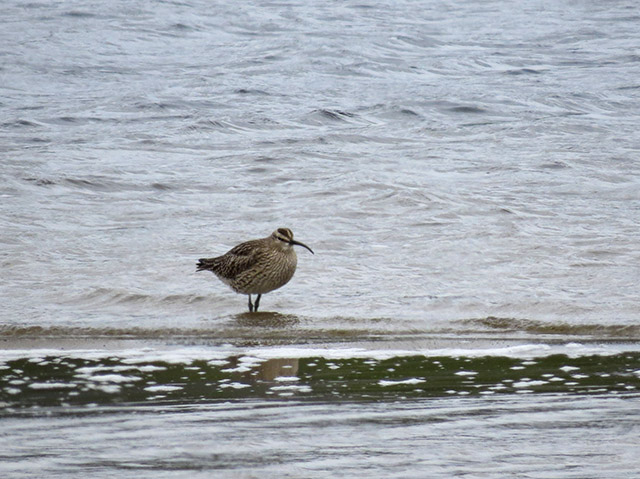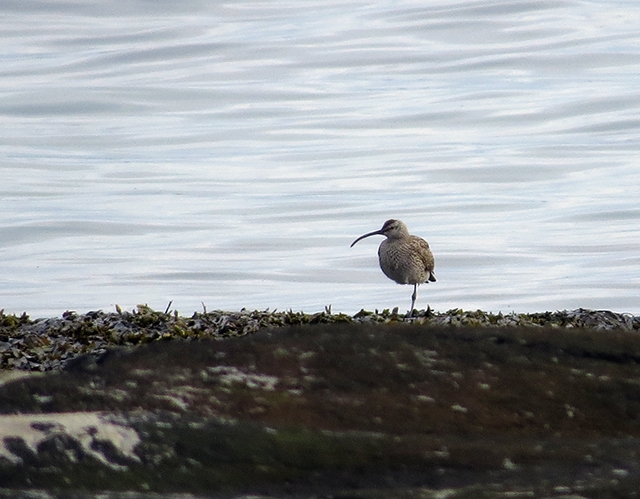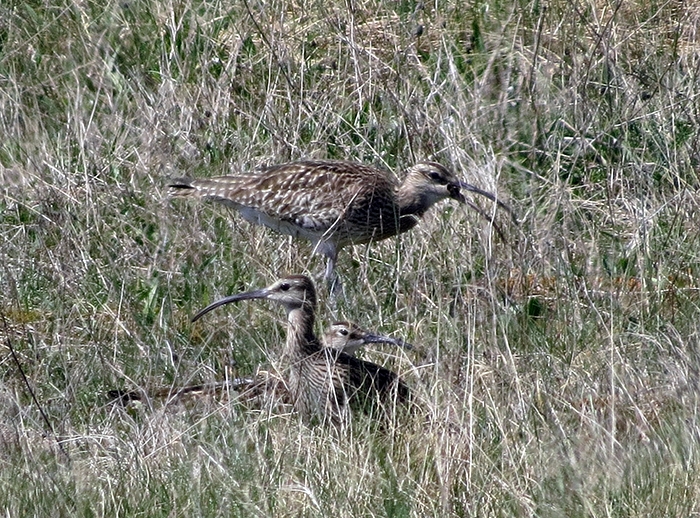Black-winged Stilt (Himantopus himantopus)
Whimbrel (Numenius phaeopus)
Unmistakable due to the extremely long, red legs. High contrast plumage with pointed, black wings (both upper and under-side) and white underparts. Tail white, with white wedge extending up back. Back of adult male sooty black, while brownish black in female and immature. Head all white or with black markings independent of sex (males more often have black markings than females though). Immature with faint, pale fringes to coverts, and white trailing edge to secondaries visible in flight.
Sound:Most vocal at breeding ground. Various short,sharp "kyp" may resemble both Avocet, Coot and Spur-winged Lapwing (Vanellus spinosus). While a tern-like "kee-arr" is more distinct. Note that immature birds have a different contact call closely resembling Wood Sandpiper, but do not utter it in series.
Contact calls:
Distribution:
Xeno-canto: map
Ecology:Birdlife ecology
Links:
Observation.org Latest observations
Image search Flickr NB! May give other species
CCNotably smaller than Curlew. Bill is shorter and curves more closer to the tip. Markings on head much more prominent than in Curlew, with double dark lateral crown-stripes (light stripe on top of crown) and dark eye-stripe. Note that young Curlews have noticeably shorter bill than adults! Gives an overall darker impression than Curlew, especially underwing and flanks.
Sound:Song starts similar to Curlew with long wailing notes "kluuueee", which then accelerates to a continuous, vibrating single note. Lacks the cyclic phrase ending of Curlew.
Song:
Distribution:
Wikipedia: map (se also Xeno-canto below)
Ecology:Birdlife ecology
Links:
Observation.org Latest observations
Image search Flickr NB! May give other species
CC
 English
English Albanian
Albanian
 Armenian
Armenian
 Bulgarian
Bulgarian
 Catalan
Catalan
 Croatian
Croatian
 Czech
Czech
 Danish
Danish
 Dutch
Dutch
 Finnish
Finnish
 French
French
 Georgian
Georgian
 German
German
 Greek
Greek
 Hungarian
Hungarian
 Italian
Italian
 Latvian
Latvian
 Lithuanian
Lithuanian
 Macedonian
Macedonian
 Norwegian
Norwegian
 Polish
Polish
 Portuguese
Portuguese
 Romanian
Romanian
 Russian
Russian
 Sami : Lule sami
Sami : Lule sami
 Sami : North sami
Sami : North sami
 Sami : South sami
Sami : South sami
 Scientific names
Scientific names
 Serbian
Serbian
 Spanish
Spanish
 Swedish
Swedish
 Ukrainian
Ukrainian

